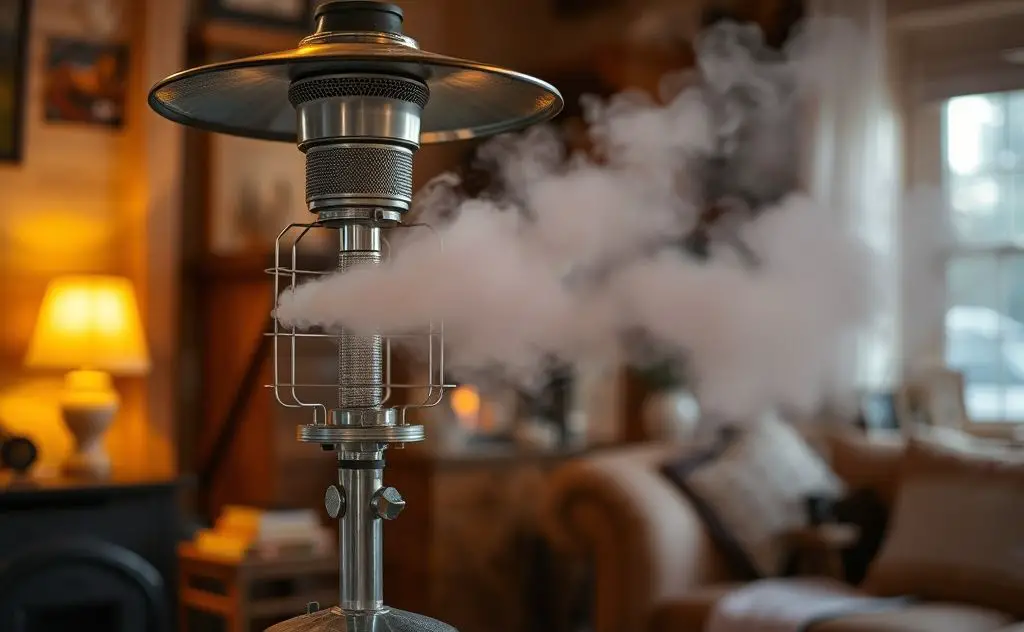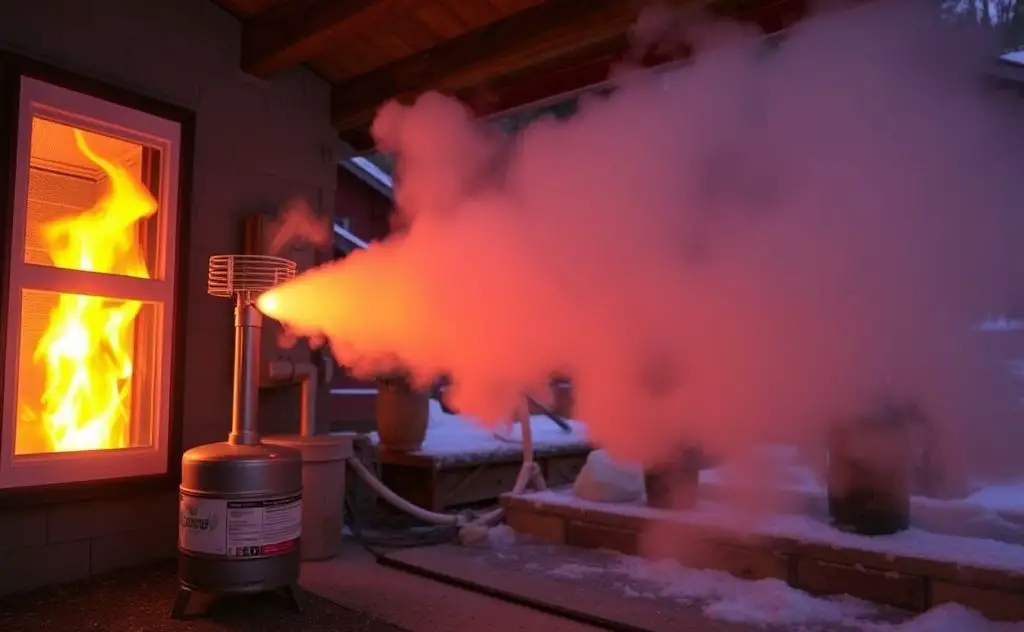Yes, propane heater fumes can be harmful as they may contain carbon monoxide, which is a colorless, odorless gas that can lead to poisoning if inhaled in high concentrations, so proper ventilation and safety measures are essential when using propane heaters indoors.
Propane heaters provide efficient warmth, but their fumes can pose serious health risks if not handled properly. Understanding these dangers and implementing safety measures is crucial for safe operation.

Health Risks of Propane Heater Fumes
Propane combustion produces several harmful byproducts that affect indoor air quality and human health:
Carbon Monoxide Poisoning
Incomplete propane combustion creates carbon monoxide (CO), a colorless, odorless gas that binds to hemoglobin 200x more effectively than oxygen. The CDC reports over 400 U.S. deaths annually from CO poisoning.
Nitrogen Dioxide Exposure
Propane flames generate nitrogen dioxide (NO₂), which irritates airways and worsens respiratory conditions. Studies show even low-level exposure reduces lung function in asthma patients.
Particulate Matter
Burning propane releases fine particles (PM2.5) that penetrate deep into lungs. Chronic exposure increases COPD risk by 30-50% according to American Lung Association data.

Safety Features of Modern Propane Heaters
| Feature | Indoor Models | Outdoor Models |
|---|---|---|
| Oxygen Depletion Sensor | ✔️ Required | ❌ Not required |
| Tip-Over Switch | ✔️ Standard | ✔️ Standard |
| CO Shutoff | ✔️ 100-400 PPM | ❌ None |
Ventilation Requirements
Proper ventilation is critical. For every 1,000 BTUs, provide:
- 1 sq inch of upper ventilation
- 1 sq inch of lower ventilation
Choosing the Right Propane Heater
Consider these factors when selecting a propane heater:
Indoor vs Outdoor Models
Only use ventless propane heaters specifically designed for indoor use. Outdoor models lack critical safety features.
BTU Rating
Match heater capacity to room size:
- Small rooms (150 sq ft): 5,000-10,000 BTU
- Medium rooms (300 sq ft): 15,000-20,000 BTU
- Large spaces (500+ sq ft): 30,000+ BTU
Emergency Response for Propane Exposure
Recognize these symptoms of propane fume exposure:
Mild Exposure
- Headache
- Dizziness
- Nausea
Severe Exposure
- Confusion
- Loss of consciousness
- Cardiac arrest
If symptoms appear, immediately:
- Turn off heater
- Open windows/doors
- Evacuate the area
- Call 911
Maintenance for Safe Operation
Regular maintenance prevents fume-related hazards:
Monthly Checks
- Inspect burner for debris
- Check hose connections
- Test safety shutoffs
Annual Service
Have a certified technician perform complete inspections, especially for common propane heater issues.
Alternative Heating Options
For those concerned about propane fumes, consider:
- Electric space heaters
- Oil-filled radiators
- Hydronic baseboard systems
Each option has distinct advantages – compare oil-filled vs electric heaters to find the best fit.
